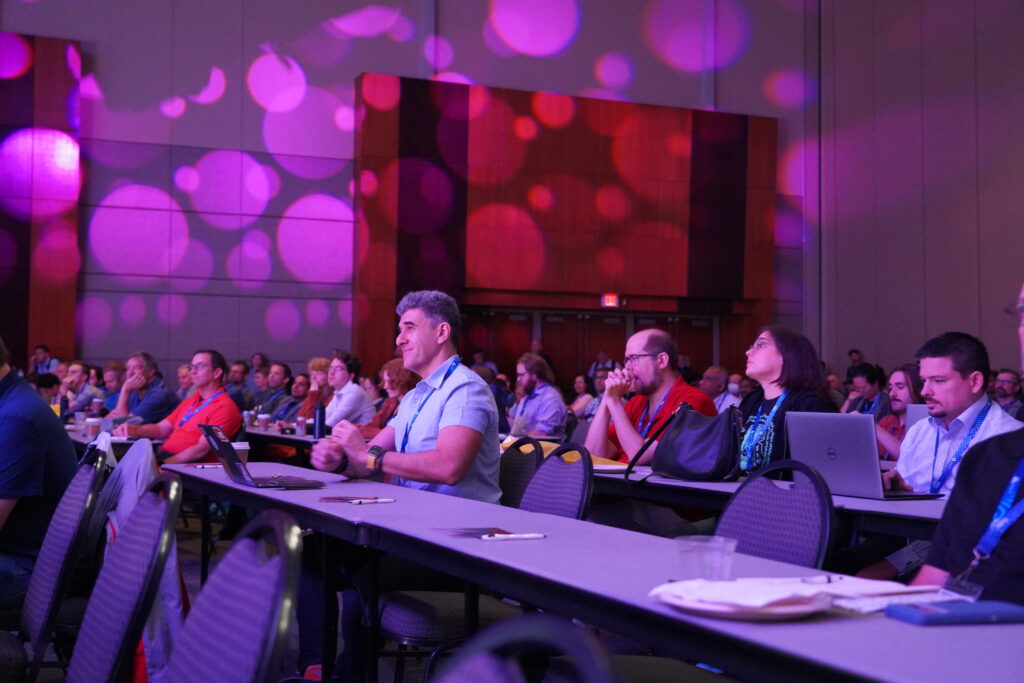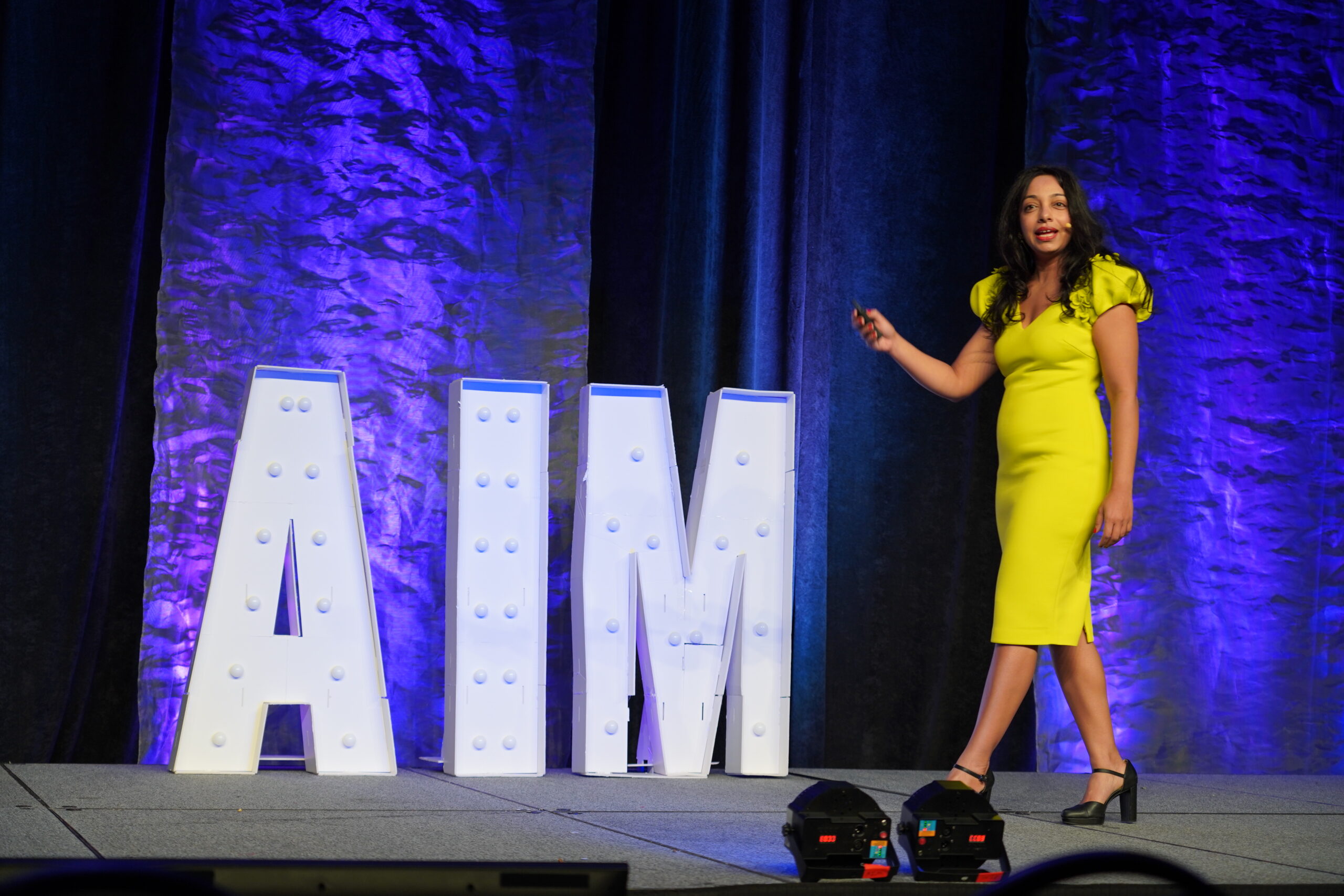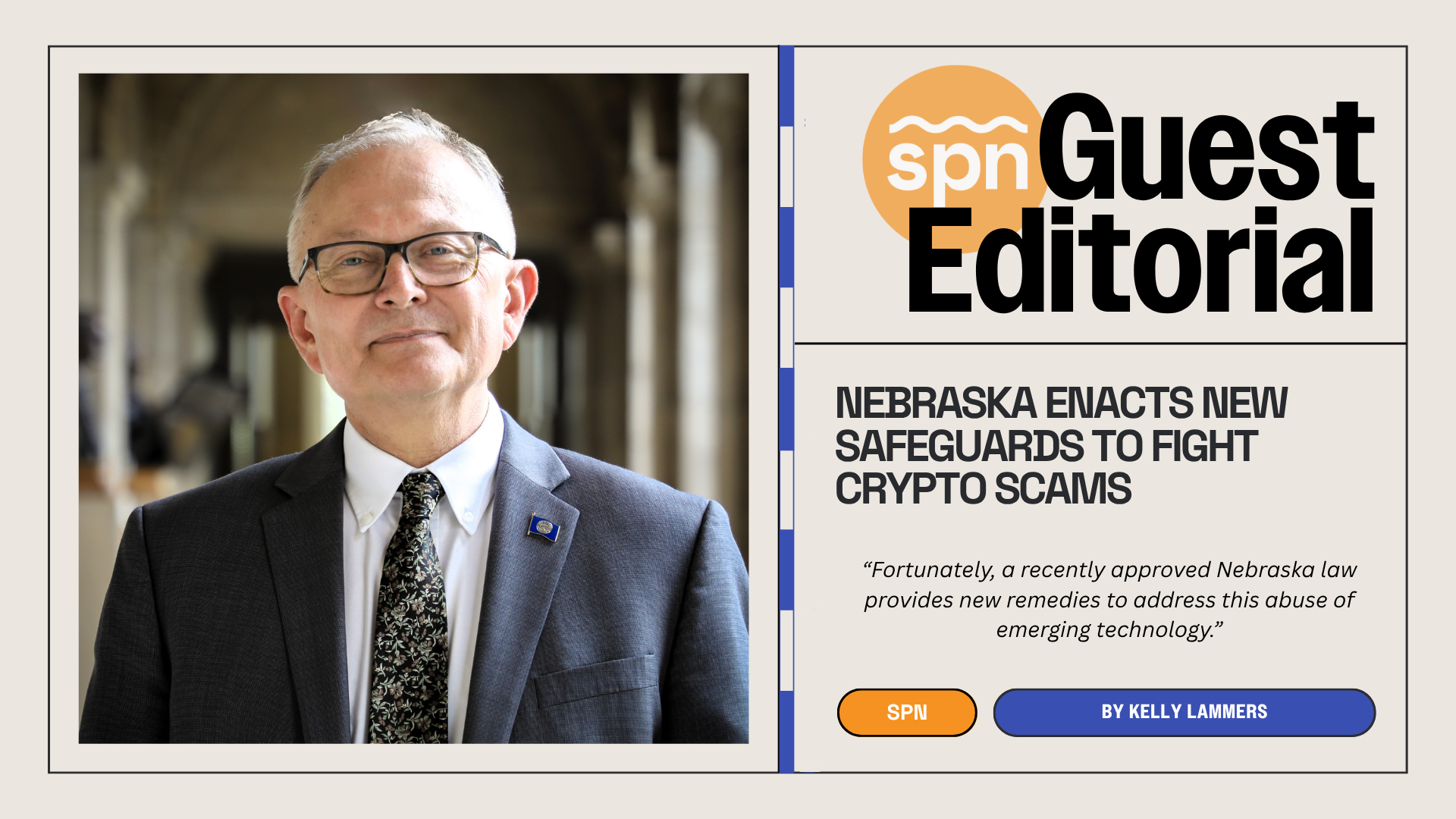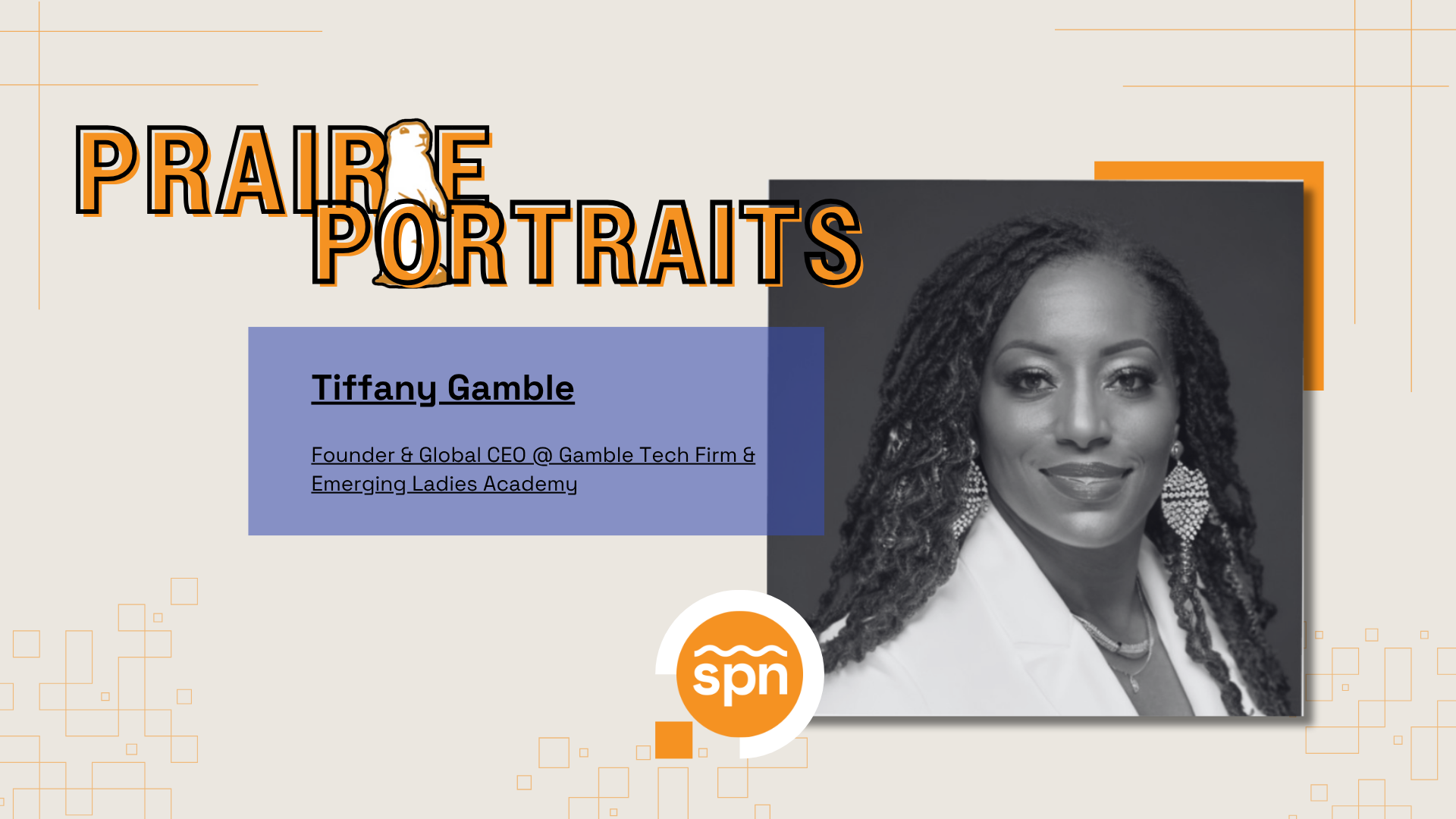The AIM Institute’s Heartland Developers Conference (HDC) and inaugural BIG AI event brought together tech professionals to explore the future of artificial intelligence (AI) and its implications for human involvement.
The two-day event featured two keynote speakers—Radhika Dirks, Ph.D, CEO & Co-Founder of XLabs and RIBO and Matt Waite, Pulitzer Prize winner and Professor of Journalism at the University of Nebraska-Lincoln—to speak on AI’s future and approaching it with skepticism.
Keynote Highlights
Dirks was the keynote speaker on the first day. Her talk, “Human Implications Of Generative AI And What It Means For Our Future,” discussed both AI’s strengths and limitations. She outlined AI’s capabilities in areas such as content generation and technical assistance, but noted issues like hallucinations (incorrect or misleading results that AI models can generate) and unreliability in its outputs.
“We will be living in the hallucinations of machines,” Dirks said.
Dirks also addressed the need to mitigate bias in AI systems and emphasized the importance of ethical and secure use of the technology. She emphasized the importance of establishing ethical practices and urged continuous skill development for professionals.
“Anything that can be generated will be generated,” Dirks said. She warned that many skills may soon become obsolete due to AI.

On day two at BIG AI, Wait’s keynote, “The Human is Still the Most Important Part,” focused on the importance of human oversight in AI, particularly where maintaining authenticity and accuracy is critical.
Waite emphasized that while AI can enhance productivity, it is crucial to be aware of its limitations and potential risks. “The marketing around AI has reached Brando levels,” Waite said. “What happens if [AI] goes wrong?”
Waite said, “If authenticity and accuracy are core business functions for you, I would move very, very slowly with AI. I would move very consciously.”
AI Ethics and Compliance Panel
A panel discussing the ethics of AI consisted of Deepak Khazanchi, Ph.D, UNO School of IS&T; Matt Waite; Jack D. Horgan, Koley Jessen; Stephen Ivaskevicius, Mutual of Omaha; Maggi Thorne, AIM, and was moderated by Boaz Ashkenazy, Augmented AI.
Panelists stressed that companies should adopt human-centric practices, prioritizing fairness, transparency and risk mitigation.
Waite asked, “What is the risk?” Regulation will build around that risk. Many panelists predicted that government regulation will emerge on AI oversight as state-level laws, focusing on privacy and misinformation.

The discussion touched on AI’s impact on the workforce. Panelists raised concerns about job displacement but showed that AI has optimism: “Those of us who’ve been in the workforce for a long time… remember work-life balance? What if AI could give us that back?” Waite said.
“I honestly think a lot of technology companies have taken advantage of the fact that most people don’t understand tech and have pushed products on ideas and changes on society,” Waite explained. Adopting human first ideas and approaches will help meet society where it is, and improving society will improve your job and life, he said.
Horgan said people believe that AI is the new hot thing, so we need to use it. The question people need to ask though is, can AI actually help you?
Breakout Sessions
The breakout sessions at HDC and BIG AI covered a range of topics relevant to both professional and technical development.
- John (Scott) Spratlen and Leanne Ball explored the Midwest mindset in “Challenging Midwestern Mindsets: Unlocking the Full Potential of Technology Teams,” discussing six key regional ideals and their impact on leadership and communication.
- Devon Seacrest‘s session, “Building the Right Features,” focused on the importance of usability testing in software development, emphasizing psychological safety and customer understanding.
- Russ Wagner and Jaclyn McLaughlin shared their experiences with agile transformation in “Transform Your Delivery, Not Your Company Culture,” highlighting the alignment of agile processes with company culture.
- Satish Agrawal presented on “Building Production Ready RAG Applications,” discussing the integration of AI models in government programs and the importance of testing strategies.
- Trent Minneman‘s session, “Beyond Blogs and Bots,” showcased the practical application of AI to enhance business operations.
- Aaron Blythe‘s “GenAI in Action” highlighted Google’s investments in Nebraska and the potential of generative AI across various business functions, including enhancing customer experience and productivity.
Key Takeaways
“[What] I thought about the most is starting with the channel, starting with what you’re trying to solve. Then, using the AI. Not going the other way around,” Patti Martin, project manager for business intelligence and tech at the Greater Omaha Chamber, said.

Martin’s biggest takeaway from the conference was the discussions around using automation to enhance productivity, enabling people to do more. She noticed that people are looking for authenticity and accuracy with AI use and how you can move to make that possible.
Pete Thompson, senior vice president of operations at the Greater Omaha Chamber, shared Martin’s desire for a solid foundation when integrating AI.
“No matter what…you still need to have underlying data just to be able to make the most effective enhancers quickly,” Thompson said. It is not so different from other technologies.
AIM’s Heartland Development Conference 2025 is planned for next year on October 6th and 7th; more information about next year’s events can be found on their website.




